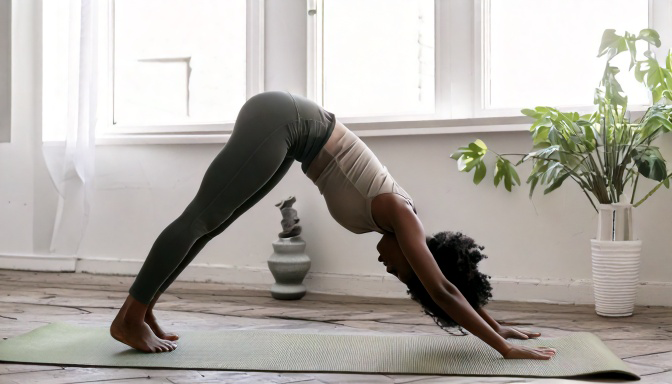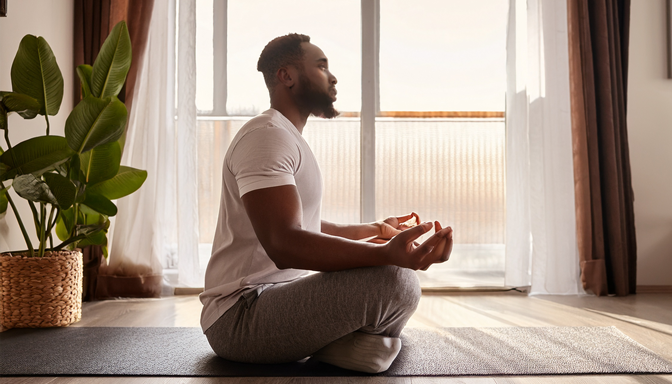15 Powerful Self-Care Strategies for Singles to Instantly Boost Confidence
15 Powerful Self-Care Strategies for Singles to Instantly Boost Confidence
Being single isn’t a setback—it’s an opportunity for incredible personal growth and self-discovery. A 2019 Pew Research Center study reveals that personal identity is increasingly defined by individual achievements and personal development, offering singles a unique chance to focus on self-improvement.
1. Morning Mindset Reset: Rewire Your Internal Dialogue

Neuroscientific research from Harvard Medical School demonstrates that our brain’s neuroplasticity allows us to reshape thought patterns through consistent practice. Each morning presents an opportunity to intentionally reset your mental state, transforming self-critical thoughts into empowering narratives that build lasting confidence and resilience.
Key Strategies
- Creating a 5-minute gratitude journal
- Replacing self-critical thoughts with compassionate self-talk
- Developing a personalized morning affirmation routine
- Practicing daily positive visualization
- Challenging negative thought patterns systematically
Neurological Benefits
A study published in the Journal of Positive Psychology shows that consistent positive self-dialogue can:
- Reduce stress hormones
- Improve neural connectivity
- Enhance overall mental resilience
2. Fitness as Self-Love, Not Punishment

Research from the Mayo Clinic reveals that exercise is far more than physical transformation—it’s a powerful mechanism for mental health and self-confidence. Physical activity serves as a metaphorical and literal journey of overcoming challenges, building not just muscular strength but mental fortitude that directly translates to increased self-assurance.
Holistic Fitness Approaches
- Choose movement you genuinely enjoy
- Set performance-based goals instead of appearance goals
- Explore diverse fitness options: dance, hiking, yoga, martial arts
- Practice mind-body connection exercises
- Track progress through personal achievement metrics
Budget-Friendly Fitness Options
- Free YouTube workout channels
- Community center classes
- Bodyweight exercises
- Fitness apps with free versions
- Outdoor activity groups
3. Create a Personal Development Reading List

Psychological research from Stanford University demonstrates that continuous learning keeps the brain adaptable and boosts confidence. Reading isn’t just about consuming information—it’s a transformative practice of expanding perspectives, challenging existing beliefs, and developing a more nuanced understanding of yourself and the world.
Strategic Reading Approaches
- Explore personal growth literature
- Include memoirs of inspiring single individuals
- Cover topics like emotional intelligence and self-improvement
- Join book clubs or reading challenges
- Take notes and reflect on key insights
Recommended Starter Books
- “Attached” by Amir Levine
- “The Gifts of Imperfection” by Brené Brown
- “Atomic Habits” by James Clear
- “The Power of Now” by Eckhart Tolle
- “Mindset” by Carol Dweck
4. Master a New Skill Every Quarter

LinkedIn’s Workplace Learning Report emphasizes that skill acquisition is a critical component of personal and professional growth. Each new skill represents a small victory, building a portfolio of personal achievements that incrementally boost your confidence and demonstrate your capacity for continuous learning.
Skill Development Strategies
- Take online courses
- Use platforms like Coursera or edX
- Choose skills that excite you: coding, photography, cooking
- Join skill-based community groups
- Document and showcase your learning journey
Skill Learning Tips
- Start small and consistent
- Join online communities for support
- Celebrate every milestone
- Share your progress publicly
- Seek mentorship or guidance
5. Cultivate a Robust Social Network

Gallup Research shows that strong social connections are crucial for mental well-being and personal confidence. Meaningful relationships provide emotional support, diverse perspectives, and opportunities for growth that can’t be achieved in isolation.
Network-Building Strategies
- Join hobby-based meetup groups
- Attend professional networking events
- Leverage social media for meaningful connections
- Volunteer for causes you’re passionate about
- Initiate regular social gatherings
Connection Benefits
The American Psychological Association confirms that strong social networks can:
- Buffer against stress and isolation
- Provide emotional validation
- Offer practical support during challenges
- Create opportunities for shared experiences
- Enhance overall life satisfaction
6. Financial Empowerment and Independence

A study in the Journal of Financial Therapy demonstrates that financial literacy directly correlates with personal confidence and reduced anxiety. Financial independence isn’t just about wealth accumulation—it’s about creating security, options, and the freedom to make choices aligned with your values.
Financial Wellness Practices
- Create a detailed monthly budget
- Build an emergency fund covering 3-6 months of expenses
- Develop an investment strategy appropriate for your goals
- Learn basic financial literacy principles
- Set specific, measurable financial milestones
Money Management Tools
- Budgeting apps like Mint or YNAB
- Financial education platforms like Khan Academy
- Investment platforms with educational resources
- Financial podcasts and books
- Community financial literacy workshops
7. Mindfulness and Meditation Practice

Harvard Medical School research demonstrates that regular meditation significantly reduces anxiety and increases self-awareness. Mindfulness isn’t just a relaxation technique—it’s a profound practice that enhances your relationship with yourself and cultivates presence in every aspect of life.
Meditation Approaches
- Start with guided meditation apps like Headspace or Calm
- Practice daily 10-minute meditation sessions
- Explore different techniques (breathing, body scan, loving-kindness)
- Join local meditation classes or online communities
- Integrate mindful moments throughout your day
Scientific Benefits
The American Psychological Association cites these research-backed benefits:
- Reduced rumination
- Decreased stress response
- Improved attention and focus
- Enhanced emotional regulation
- Greater self-compassion
8. Professional Development and Career Growth

The Journal of Vocational Behavior shows that ongoing professional development directly correlates with confidence and life satisfaction. Career growth isn’t just about advancement—it’s about purpose, contribution, and continuously expanding your capabilities.
Career Enhancement Strategies
- Take specialized online courses in your field
- Seek mentorship relationships
- Attend industry conferences and workshops
- Build a strong professional online presence
- Request stretch assignments at work
Development Resources
- Industry-specific certifications
- Professional association memberships
- LinkedIn Learning courses
- Toastmasters for communication skills
- Industry podcasts and newsletters
9. Creative Expression and Hobby Development

Research published in the Journal of Positive Psychology shows that creative pursuits significantly boost mood and confidence. Creative expression isn’t just about producing art—it’s about discovering new aspects of yourself, developing patience, and experiencing flow states that enhance overall well-being.
Creativity-Boosting Activities
- Try art classes (painting, pottery, photography)
- Learn a musical instrument
- Explore writing or journaling
- Take up dance or theater
- Develop cooking or gardening skills
Benefits of Creative Practice
- Reduces stress and anxiety
- Provides accomplishment experiences
- Develops patience and persistence
- Creates opportunities for social connection
- Builds confidence through skill development
10. Digital Detox and Healthy Boundaries

Research from the University of Pennsylvania demonstrates that limiting social media use significantly improves mental well-being. Digital wellness isn’t about rejecting technology—it’s about establishing intentional boundaries that protect your mental space and authentic connections.
Digital Wellness Strategies
- Set specific screen-free times daily
- Create tech-free zones in your home
- Practice mindful social media consumption
- Use apps that track and limit screen time
- Prioritize in-person interactions
Mental Health Benefits
- Reduced comparison and FOMO
- Improved sleep quality
- Enhanced present-moment awareness
- More authentic connections
- Greater control over attention and focus
11. Travel and Solo Adventures

A study in the Journal of Personality and Social Psychology reveals that travel experiences provide lasting confidence benefits. Solo adventures aren’t just about seeing new places—they’re opportunities to test your resilience, expand your comfort zone, and develop self-reliance in unfamiliar situations.
Solo Travel Approaches
- Start with local day trips or weekend getaways
- Join group tours for solo travelers
- Use travel apps designed for safety and connection
- Document your experiences through journals or photography
- Challenge yourself with increasingly adventurous destinations
Confidence-Building Benefits
- Problem-solving in unfamiliar environments
- Cultural intelligence development
- Independence reinforcement
- Social skill enhancement
- Perspective-broadening experiences
12. Emotional Intelligence Development

Harvard Business Review research shows that emotional intelligence is more predictive of success than IQ. EQ isn’t just about understanding emotions—it’s about leveraging emotional awareness to navigate relationships, make better decisions, and respond effectively to challenges.
EQ Enhancement Methods
- Practice self-awareness through reflection
- Develop active listening skills
- Learn to identify and name emotions
- Attend workshops on emotional intelligence
- Seek feedback on emotional communication
Professional Applications
- Better conflict resolution
- More effective leadership
- Enhanced teamwork capabilities
- Improved client/customer relationships
- Greater adaptability during change
13. Nutrition and Holistic Wellness

The International Journal of Behavioral Nutrition and Physical Activity documents the powerful mind-body connection between nutrition and mental well-being. Nutrition isn’t just about physical health—it’s self-care that impacts energy levels, mood stability, and cognitive function.
Wellness Nutrition Strategies
- Focus on whole, unprocessed foods
- Plan and prepare meals in advance
- Stay well-hydrated throughout the day
- Learn basic nutrition principles
- Develop a healthy relationship with food
Science-Backed Benefits
- Improved mood stability
- Enhanced cognitive function
- Increased energy levels
- Better stress management
- Stronger immune function
14. Sleep Hygiene and Recovery

The Journal of Sleep Research demonstrates that quality sleep is fundamental to cognitive function and emotional regulation. Sleep isn’t a luxury—it’s essential maintenance that affects every aspect of your mental and physical performance.
Sleep Optimization Techniques
- Maintain a consistent sleep-wake schedule
- Create a relaxing bedtime routine
- Design a comfortable sleep environment
- Minimize screen time before bed
- Manage caffeine and alcohol consumption
Recovery Benefits
- Enhanced emotional regulation
- Improved memory consolidation
- Better immune function
- Reduced stress hormone levels
- Increased daytime energy and focus
15. Continuous Self-Reflection and Journaling

Research in the Journal of Personality and Social Psychology shows that regular self-reflection accelerates personal growth and insight development. Journaling isn’t just record-keeping—it’s a powerful dialogue with yourself that reveals patterns, clarifies values, and deepens self-understanding.
Reflective Practice Techniques
- Use guided journal prompts
- Practice gratitude journaling
- Reflect on personal growth milestones
- Explore values clarification exercises
- Try both digital and handwritten journaling
Psychological Benefits
- Increased self-awareness
- Improved emotional processing
- Enhanced problem-solving abilities
- Clearer personal values identification
- Greater sense of purpose and direction
Conclusion
Confidence is a skill that can be systematically developed through intentional practices. Psychological Science confirms that with consistent effort and the right strategies, anyone can build robust self-confidence that transforms their experience of single life.
Your Confidence-Building Roadmap
- Choose 3-5 strategies to implement this week
- Track your progress in a dedicated journal
- Be patient and kind to yourself during the process
- Celebrate small victories along the way
- Connect with supportive communities who share your growth mindset
Affiliate Disclaimer: Some links in this article may be affiliate links where a purchase would provide us with a commission. We only recommend products and services we truly believe can help you on your personal growth journey.
Advice Disclaimer: This advice is for informational and entertainment purposes only and not a substitute for professional counseling, therapy, financial, legal, or medical advice. You are responsible for your own decisions and actions. For serious issues, please consult qualified professionals.



